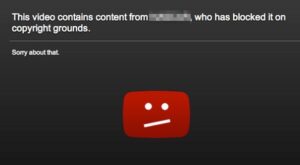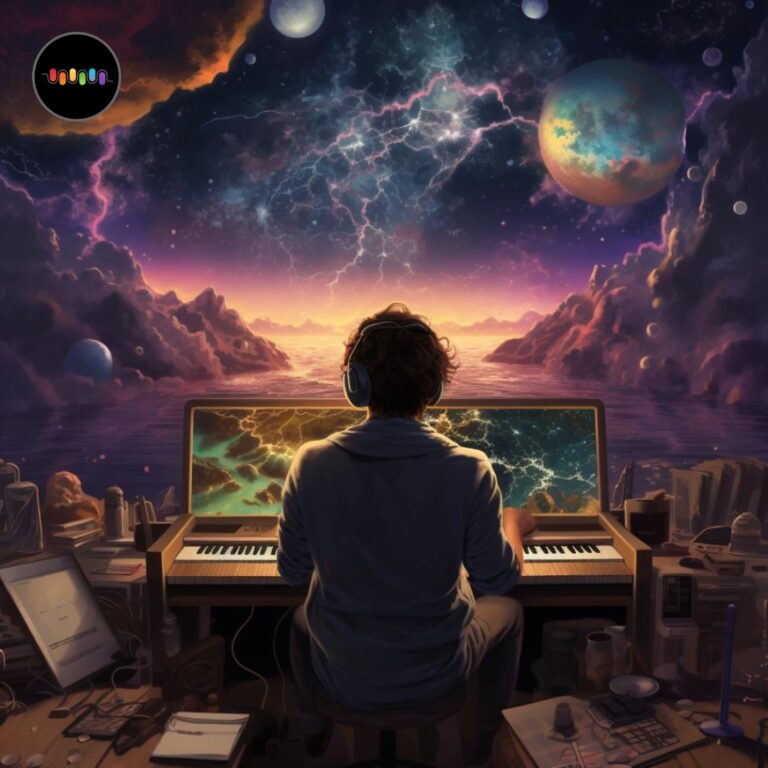In content creation, visuals and narratives interlace to create a symphony of storytelling, and music acts as the silent maestro, enhancing that storytelling and driving the emotions.
This is why content creators spend hours finding that perfect background music.
While finding the perfect music is challenging, things get more complicated when creators also have to worry about copyright regulations.
This is where copyright-free music becomes a life-savior for filmmakers, podcast creators, YouTubers, and game creators. It provides a convenient and cost-effective way to use quality music for your projects without additional costs and licensing agreements.
What does copyright-free music mean?
Copyright-free music is the type creators use in their content without legal implications or copyright infringement. It does not require you to pay ongoing royalties or license fees for using it in your content every time.
Copyright-free music does not mean that it is entirely free to use. It rather means that the owner has granted certain usage rights to the public. Every copyright-free music has a licensing that specifies the terms of use for the music. The music licenses issued vary, and you should read them carefully to understand the scope of music usage before using them.
For example, some licenses may only allow the use of the music for personal use, while others might permit it commercially. Some might allow you to modify the music or even for redistribution. As a creator, you must ensure that your intention of using the music aligns with the owner’s terms outlined in the music license agreement.
Why is copyright-free music important?
If you are a content creator, we bet you have come across this at least once in your life 👇

Hurts, doesn’t it?
Copyright-free music saves you from copyright suits that cost a fortune.
Here’s why copyright-free music is the need of the hour:
How do content creators use copyright-free music?
Taylor Swift is one of the most followed celebrities on Instagram, a famous singer, pop artist, and whatnot! People use her music for reels, shorts, TikTok videos, and other forms of social content.
But is her music copyright-free? Well, no.
The platforms will take down your content anytime if she claims copyright on the music you use.
The mindful and better way to create content is to find yourself a source of copyright-free music. Here’s how you can do it:
Copyright-free music vs. Royalty-free music – What are the differences?
While these terms are often used interchangeably, they are different from each other. Let’s understand how.
Royalty-free music is the type of music for which you won’t have to pay ongoing royalty to the artist every time it is played. This type of music requires a one-time payment, like a license fee, and that’s it.
The difference
Read this to end the Copyright-free vs. Royalty-free dilemma
Myths related to copyright-free music
There are a few misconceptions about copyright-free music in the global creator’s community. Let’s bust these myths and get to the reality of it.
Myth: All copyright-free music is free of charge
Some copyright-free music is free of charge, but not all. There can be a one-time fee, subscription fee, platform fee, or any indirect charge.
Myth: Copyright-free music is low in quality
Many copyright-free music stock music libraries offer high-quality music from talented artists.
Myth: All copyright-free music can be used for commercial purposes
The licensing term defines whether the music is free for commercial use. This means that not all copyright-free music can be used for commercial purposes.
Myth: Attribution is never required for copyright-free music
Copyright-free music, like Public Domain and Creative Commons, often does not require attribution. A piece of music listed under the public domain is free for anyone to use, regardless of purpose. Creative Commons are licenses provided by non-profit organizations that allow content creators to use the music as per their needs. The critical difference between public domains and creative commons is that public domains don’t require permission from the music creator. In contrast, creative commons sometimes require attribution from the creators.
Pros and Cons of using copyright-free music
Copyright-free music has both pros and cons for creators. It is essential to be mindful of these when looking for awesome background music for your content.
Pros
Cons
Where can content creators find copyright-free music?
A great place to find copyright-free music is – YouTube Audio Library. This channel is dedicated to assisting creators with copyright-free and royalty-free music. This channel has specific terms and conditions like:
If a creator violates any of these terms and conditions, they would be subjected to copyright claims.
How do you know if the music is copyright-free?
To avoid any last-minute hassle, always download copyright-free music from reputable sources and use these tips to find out if the music is copyright-free:
Conclusion
As we have seen, finding copyright-free music is tricky, but avoiding legal consequences is worth the effort. Copyright-free music liberates content creators from the constraints of legal licensing and gives you access to music without breaking the bank.
However, you should choose royalty-free music when finding unique, high-quality music.
But wait, you don’t have to scroll through tons of music when you have Beatoven.ai to help you create your music.
Beatoven.ai is an AI music generator platform that allows you to create your music compositions and gives you royalty-free usage. The platform works with renowned artists to generate original royalty-free music for content creators.
All you have to do is:
You can set the tone, mood, tempo, and style, change the instruments, and create music you like.
Go try it out now!
Other FAQs
How can I find copyright-free music?
You can find copyright-free music on websites that exclusively offer copyright-free music. You can also create royalty-free music using an AI music generator like Beatoven.ai.
What music has no copyright?
The music marked as public domain is free to use without licensing and has clear terms of use stating it is copyright-free.
Is it okay to use no-copyright music?
Yes, it is okay to use no-copyright music as it allows you to use it without fearing copyright infringement and being taken down by the platform due to copyright issues.

Sreyashi Chatterjee is a SaaS content marketing consultant. When she is not writing or thinking about writing, she is watching Netflix or reading a thriller novel while sipping coffee.

